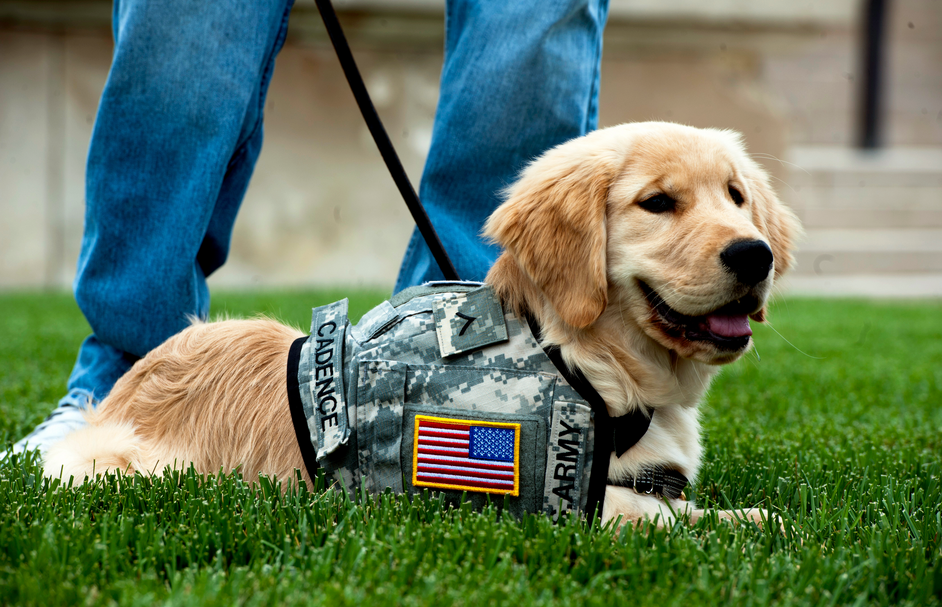
Advertisement
There is no doubt that dogs are man’s best friend. The results of a new study suggest that dogs can also be the best therapists for our traumatized soldiers. In an article on Psychology Today, researchers reported that veterans who are suffering from Post Traumatic Stress Disorder (PTSD) enjoy better physiological and psychological health if they are assisted by a service dog.
Anywhere from five to 20 percent of U.S. military veterans return home with terrible memories of combat and violence. Even if they are not physically injured, their PTSD severely hampers them from reconnecting with their loved ones and society in general.
Some of these veterans require the assistance of service dogs, specially-trained assistance canines that help disabled people. These dogs are individually trained and are therefore expensive.
An early study conducted by Purdue University (Purdue) researchers compared veterans who have service dogs with those who were waiting to receive one. They noted that dog owners were psychologically healthier than those who didn’t have assistance dogs.
Inspired by that earlier study, the research team partnered once more with K9s for Warriors, a non-profit group that matches veterans with service dogs.
In addition to investigating the psychological benefits of a canine companion, the Purdue researchers also studied physiological effects on the veterans with PTSD. They did this by examining the salivary cortisol levels.
“We found that military veterans with a service dog in the home produced more cortisol in the mornings than those on the waitlist,” reported Kerri Rodriguez, a Purdue researcher who served as the first author of the paper. “This pattern is closer to the cortisol profile expected in healthy adults without PTSD. Having a service dog was also associated with less anger, less anxiety, and better sleep.” (Related: Be fluent in “dog speech”: Animal behaviorists share science-proven ways to talk to your dog.)

Veterans with PTSD showed better physical and mental health if they owned a service dog
The Purdue study comprised 45 veterans with PTSD who owned a service dogs and 28 vets who desired one but were still waiting. On two separate days, participants took samples of their own saliva upon waking up and half an hour later.
Researchers analyzed the amount of cortisol in those samples. Cortisol is a stress hormone that provides an accurate gauge of a person’s stress levels. Its levels change throughout the day depending on the person’s mood.
The cortisol awakening response is the starting change in the stress hormone levels that takes place between initial awakening and 30 minutes later. Normal people start out with low cortisol levels that rise by up to 75 percent in a short amount of time. People with chronic stress – veterans with PTSD, for instance – have much lower response.
The Purdue researchers measured the cortisol awakening response of the participants as well as the rate at which cortisol changed over time. They reported that veterans with service dogs displayed higher measures when compared to their dog-derived counterparts.
The results held true even after the researchers considered the wake-up time, sleep quality, the use of alcohol and pharmaceuticals, and other factors that influenced cortisol levels.
The researchers also repeated the surveys from their earlier study. The outcomes demonstrated that service dog owners enjoyed more peaceful sleeps, experienced less anxiety and anger, and resorted to excessive alcohol consumption.
Based on their findings, the Purdue researchers propose that service dogs are able to benefit veterans with PTSD in both physiological and psychological ways. They believe further studies are required to figure out the links between PTSD and the physiological effects of having a trusted dog.
Interested in discovering more ways to help the troubled minds of our veterans? Visit MindBodyScience.news today.
Sources include:
Submit a correction >>
This article may contain statements that reflect the opinion of the author
Advertisement
Advertisements
















